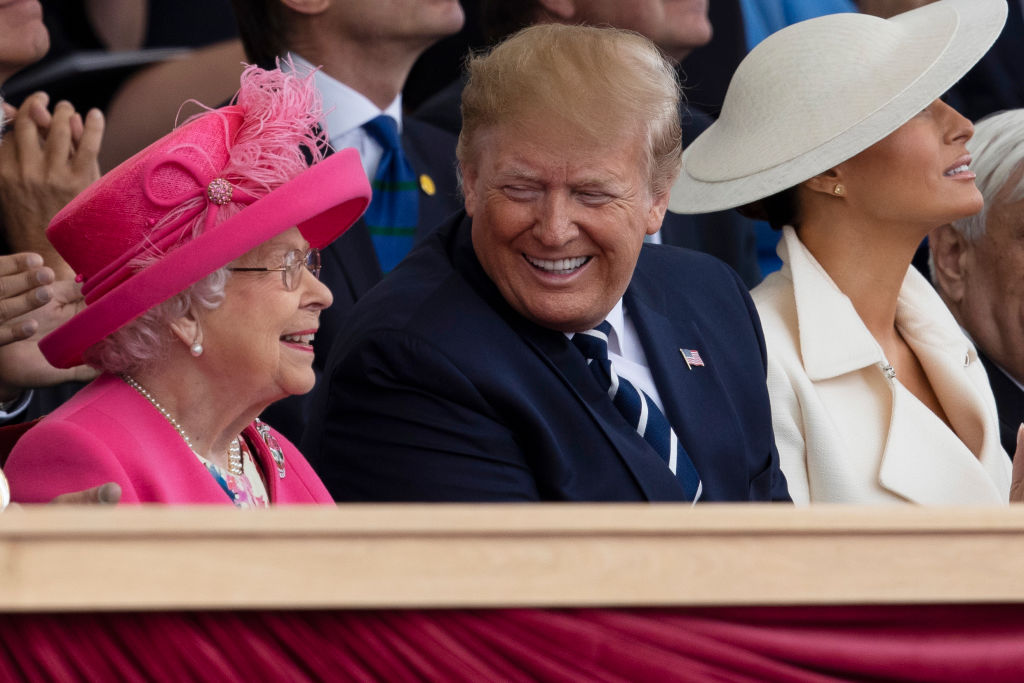The Queen who captivated America
The tributes and messages of condolence issued since the death of Queen Elizabeth II yesterday speak for themselves. In Washington, the statements came flooding in from about as wide an array of American public figures as it is possible to imagine.
The president and every living former president shared fond remembrances of their interactions with her. Lawmakers and governors commented on the news. Even state representatives and small-town mayors felt compelled to express their admiration for the woman who was, until yesterday, the world’s longest-serving sitting monarch. Baseball players paused for a moment’s silence before the first pitch. Flowers were laid at the British embassy in Washington. Flags across the United States will be flown at half-mast for ten days.
To a certain kind of very online American, these displays of admiration and the extensive coverage of the Queen’s death amount to nothing less than “psychic colonization.” But forget the Twitter-mangled minds searching for a hot take. The explanation for the outpouring of emotion in America on the news of the Queen’s death isn’t complicated. It is exactly the reaction you’d expect at the loss of a woman who came to embody not only America’s most loyal ally and sister nation, but also values that are in short supply in public life today.
As Alexander Larman put it in his excellent tribute, “It seems remarkable, in an era that prizes self-absorption and self-indulgence, to have had as one of its most iconic — some might say inspirational — figures someone who so consistently stood contra mundum against the luxuriant decadence of the present era. It is impossible to imagine the Queen tweeting, or posting on Instagram, or even sending an email.”
Part of the explanation for the response to her death in the United States is that the feeling of admiration was mutual. In a piece for Politico Magazine, I explain the Queen’s role as the not-so-secret weapon that helped forge and sustain the Special Relationship between Britain and its most powerful former colony. Reading up on the Queen and the United States, her love of the land her ancestor George III lost quickly becomes clear. A speech delivered by the Queen in Philadelphia elucidates her admiration not just for America’s leaders and people, but its very existence:
It seems to me that Independence Day should be celebrated as much in Britain as in America. Not in rejoicing at the separation of the American colonies from the British Crown but in sincere gratitude to the Founding Fathers of this great Republic for having taught Britain a very valuable lesson… We learnt to respect the right of others to govern themselves in their own ways. Without that great act in the cause of liberty, performed in Independence Hall two hundred years ago, we could never have transformed an Empire into a Commonwealth.
Two-way transatlantic admiration, therefore, not “psychic colonization,” is the best way to understand the relationship between the Queen and America.
*** Sign up to receive the DC Diary in your inbox here ***
What you should be reading today
Matt Purple: She lived her best life
Roger Kimball: An American remembrance of the Queen
Amber Athey: College condemns professor who celebrated the Queen’s death
Adrian Wooldridge, Bloomberg: The revolutionary monarchy of Elizabeth II
Wall Street Journal: An obituary for Elizabeth II
Tom McTague, the Atlantic: Queen of the world
Poll watch
Elizabeth II job approval
Approve: 86 percent
Disapprove: 7 percent
Net approval: +79(Ipsos, UK, May 2022)


















